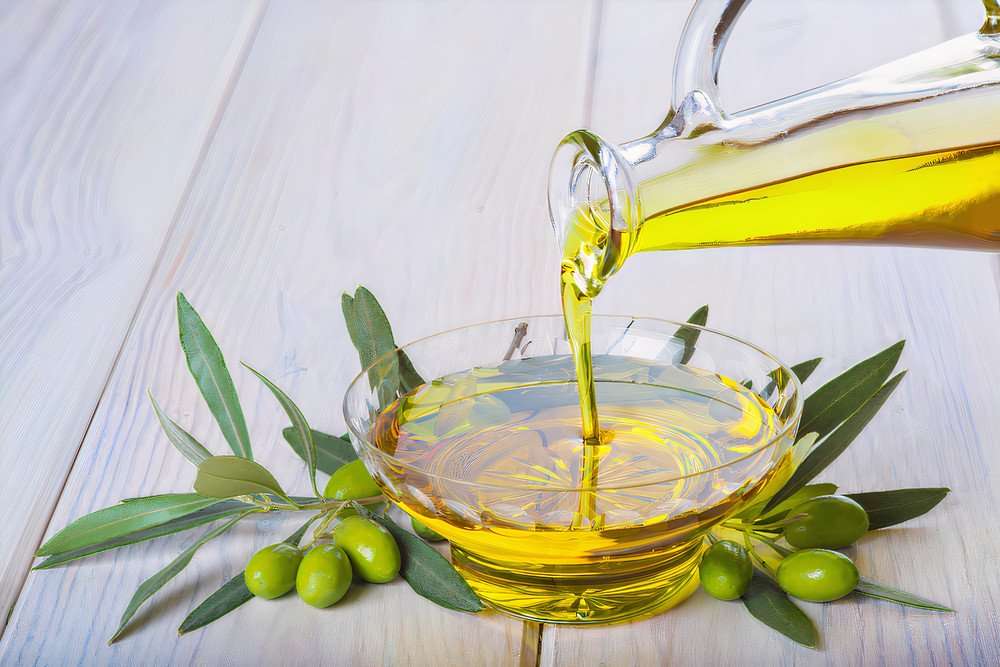Foods to eat:
-
- Healthy fat: extra virgin olive oil, and olives.
- Whole grains: brown rice, whole wheat bread, oats, and barley.
- Legumes: beans, peas, lentils, chickpeas.
- Vegetables: tomato, cucumber,basil, cauliflower, onion, garlic, spinach, carrots, mint, and peppers.
- Fruits: berries, pears, apples, grapes, watermelon,and figs.
- Nuts and seeds: walnuts, almonds, hazelnuts, cashews, sunflower seeds, pumpkin seeds
- Fish: salmon, tuna, sardines, anchovies, mackerel, mussels, andshrimp.
- Poultry: chicken, duck, doves, turkey, eggs.
- Dairy: milk, Greek yogurt,and feta cheese.
1) Extra virgin olive oil

The main type of fat used in the Mediterranean diet, as it is widely available and extremely healthy as it contains several bioactive polyphenols (tyrosol, hydroxytyrosol, oleocanthal, and resveratrol) that possess multiple anti-inflammatory properties. Through the high content of monounsaturated fatty acids (oleic acid ), olive oil is thought to have antiatherogenic properties by improving blood vessel health and lowering blood pressure and controlling a balanced lipid profile. Along with vitamins E and K that help your blood clotting mechanisms.
Extra virgin olive oil is the product of the first processing of the ripe olive fruit and it contains many antioxidants (polyphenols, tocopherol, and phytosterols) which are not available in common olive oil or the refined lower quality types of olive oil because the oil is extracted from the olive fruit by chemical or physical procedures that keep the fat content, but gets rid of most of the important bioactive ingredients that are responsible for the majority of the health benefits of olive oil.


